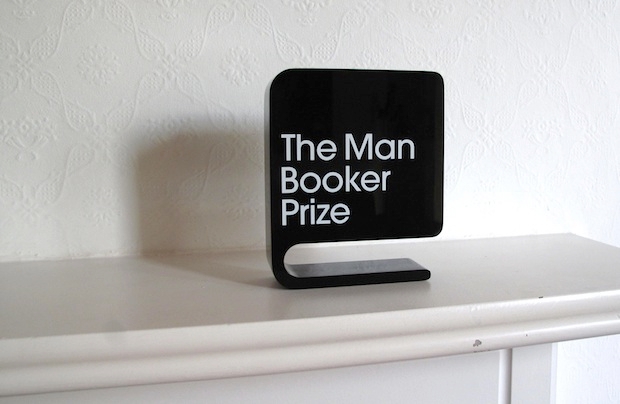Remember when the Man Booker prize was as reputable as the Queen? When it served as the nation’s literary oracle? When nobody thought about doubting its authority because its juries were, well, made up of clever, well-read people who knew what was crap and what wasn’t and so dependably sifted out, every year, the best novels for everyone else?
Well, heave back the hands of time. It’s just possible that today, after a shonky, near-horrific few years of the prize — following its annus horribilis of 2011, when chair of judges Stella Rimington steered her panel towards the award’s weirdest, crappest shortlist in living memory — the Man Booker might finally be hoicking itself back on to the plinth of respectability upon which it once rested its reputable literary rump.
Out of the six titles on the shortlist — two by newly eligible Americans: Joshua Ferris’s To Rise Again at a Decent Hour and Karen Jay Fowler’s We Are All Completely Beside Ourselves; one by an Australian: Richard Flanagan’s The Narrow Road to the Deep North; one by a London-dwelling Indian: Neel Mukherjee’s The Lives of Others; one by a Scot: Ali Smith’s How to Be Both; and one by a previously Booker-winning Brit: Howard Jacobson’s J — three (by Flanagan, Mukherjee, Smith) are worthy winners of the trophy already. Half of the Booker shortlist: copper-bottomed contenders.
There wasn’t a chance you could have said that about the 2011 shortlist. Not even the jury that year would have said it. Backed into a corner by the weirdness of their taste, they handed the prize to the only possible candidate: Julian Barnes. This year’s shortlist has three Julian Barneses on it, with better books.
This year’s jury has, almost inevitably, also kitted out its shortlist with some fashion oddities. This has become practically a Man Booker way of life.
Jacobson’s shortlisted novel is set in a post-apocalyptic Jewish dystopia. Ferris’s is set in the dire life of a bored dentist who — oh, golly — discovers something nasty about himself on the internet. Fowler’s is a high-concept, commercial read with a lunking great narrative twist.
But including wild cards has essentially become the Man Booker jury’s way of protesting that, hey, it’s got its own taste and knows its own mind, okay? Which almost certainly accounts for why they gave a big fat V-sign to Martin Amis, Philip Hensher, Ian McEwan and Donna Tartt at longlist stage. Yet it’s now, with their shortlist, that they’ve finally shown their critical faculties coming to life.
Shortlist time is when the Booker stops chatting up every gorgeous person in the room, and finally starts knuckling down who the prize is actually going to take home. And the truly impressive half of this year’s shortlist — the half from which surely (surely?) the winner will come — is a remarkable indicator of the Man Booker’s long, penitent road to rehabilitation.
The three standout titles in the shortlist are — stunningly, given the form of the past three years — already classic Booker winners-in-the-making. Flanagan’s depicts POWs building Japan’s death railway in the Second World War. Mukherjee’s weaves family saga around Indian political unrest. Smith’s is elegant, and ingenious, and sets a contemporary teenager’s life against that of a renaissance artist.
You can see the jury’s acumen, in fact, in what they’ve left out, too, from their baggy longlist, including half-cocked fare from Joseph O’Neill and David Mitchell. What they’ve whittled down, instead, is three Booker-worthy titles, with three oddballs thrown in for panache.
Man Booker: welcome back into the room.
Robert Collins is the former deputy literary editor of the Sunday Times and the author of Soul Corporation (Arrow)






Comments